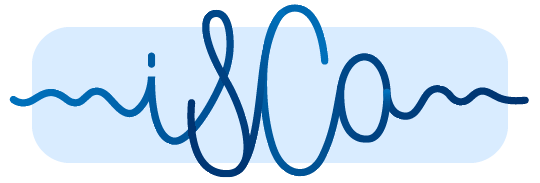PhD Title: SUMMA-Sound : SUMMarization of Activities of daily living using Sound-based activity recognition Partnership:
IMT Atlantique : Campus ☒ Brest ☐ Nantes ☐ Rennes Laboratory : Lab-STICC Doctoral school : ☒ SPIN ☐ 3MG Funding: IMT Atlantique, co-tutelle with Instituto Superior Técnico
Context : IMT Atlantique, internationally recognised for the quality of its research, is a leading general engineering school under the aegis of the French Ministry of Industry and Digital Technology, ranked in the three main international rankings (THE, SHANGHAI, QS). Located on three campuses, Brest, Nantes and Rennes, IMT Atlantique aims to combine digital technology and energy to transform society and industry through training, research and innovation. It aims to be the leading French higher education and research institution in this field on an international scale. With 290 researchers and permanent lecturers, 1000 publications and 18 M€ of contracts, it supervises 2300 students each year and its training courses are based on cutting-edge research carried out within 6 joint research units: GEPEA, IRISA, LATIM, LABSTICC, LS2N and SUBATECH. The proposed thesis is part of the research activities of the team RAMBO (Robot interaction, Ambient systems, Machine learning, Behaviour, Optimization) and of the laboratory Lab-STICC and the department of Computer Science of IMT Atlantique. Scientific context: The objective of this thesis is to develop a method for collecting and summarizing domestic health-related data relevant for medical diagnosis, in a non-intrusive manner using audio information. This research addresses the lack of existing practical tools for providing high-level succinct information to medical staff on the evolution of patients they follow for health diagnostic purposes. This research is based on the assumption that valuable diagnostic data can be collected by observing short- and long-term lifestyle changes and behavioural anomalies. It relies on the latest advances in the domains of audio-based activity recognition, summarization of human activity, and health diagnosis. Research on health diagnosis in domestic environments has already explored a variety of sensors and modalities for gathering data on human health indicators [5]. Nevertheless, audio-based activity recognition is notable for its less intrusive nature. Employing state-of-the-art sound-based activity recognition models [2] to monitor domestic human activity, the thesis will investigate and develop methods for summarization of human activity [3] in a human-understandable language, in order to produce easily interpretable data by doctors who, remotely, monitor their patients [4]. This work continues and fosters the research of the RAMBO team at IMT Atlantique on ambient systems, enabling well ageing at home for the elderly adults or dependent populations [1]. We expect this thesis to provide technology likely to relieve the burden on gerontologists and elderly-care facilities, and alleviate the caregiver shortage by offering some automatic support to the task of monitoring elderly or handicapped people, enabling them to age-at-home while still being followed by medical specialists using automated means. Expected contributions of the thesis Scientific goals: (1) Determine the set of human activities relevant for health diagnosis, (2) Implement a state-of-the-art model for audio-based activity recognition and validate its function by clinicians, (3) Develop a model for summarizing the evolution of human activity over time intervals of arbitrary duration (typically spanning from days to months and possibly years). Expected outcomes of the PhD: (1) A model for semantic summarization of human activity, based on sound recognition of activities of daily living. (2) A proof of concept for this model Candidate profile and required skills: • Master Degree in Computer Science (or equivalent) • Programming and Software Engineering skills (Python, Git, Software Architecture Design) • Data science skills • Machine learning skills • English speaking and writing skills References: [1] Damien Bouchabou. “Human activity recognition in smart homes : tackling data variability using context-dependent deep learning, transfer learning and data synthesis”. Theses. Ecole nationale supérieure Mines-Télécom Atlantique, May 2022. url: https://theses.hal.science/tel-03728064. [2] Detection and Classification of Acoustic Scenes and Events (DCASE). url: https://dcase.community/challenge2022/task-soundevent-detection-in-domestic-environments (visited on 07/01/2022). [3] P Durga et al. “When less is better: A summarization technique that enhances clinical effectiveness of data”. In: Proceedings of the 2018 International Conference on Digital Health. 2018, pp. 116–120. [4] Akshay Jain et al. “Linguistic summarization of in-home sensor data”. In: Journal of Biomedical Informatics 96 (2019), p. 103240. issn: 1532-0464. [5] Mostafa Haghi Kashani et al. “A systematic review of IoT in healthcare: Applications, techniques, and trends”. In: Journal of Network and Computer Applications 192 (2021), p. 103164. Work Plan: The thesis will be organised in the following steps: (1) Definition of pertinent sounds and activities for health diagnosis, (2) Hardware set-up, (3) Dataset constitution, (4) Activity recognition, (5) Diarization of activities, (6) Summarization, (7) Validation in a real environment. Application: To apply for this position, please send an email with your Curriculum Vitae, a document with your academic results (if possible), and a couple of lines describing your motivation to pursue a PhD to mihai[dot]andries[at]imt-atlantique[dot]fr before 16 May 2023. Additional Information : Application deadline : 16 May 2023 Start date : Fall 2023 Contract duration: 36 months Localisation - Location : Brest (France) and Lisbon (Portugal) Contact(s) : Mihai ANDRIES (mihai[dot]andries[at]imt-atlantique.fr) Plinio Moreno (plinio[at]isr.tecnico.ulisboa.pt)
